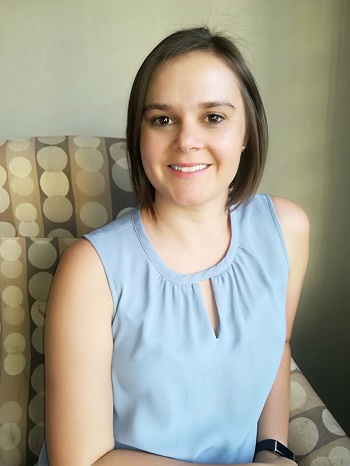Rare diseases are more common than you might think. It sounds like an oxymoron, doesn’t it? Not to the 4,1 million South Africans who have been or will be affected by rare diseases in their lifetime. For many it can be a death sentence, for others it is a life-altering diagnosis. Not only is the North-West University (NWU) committed to ensuring that rare diseases are detected as early as possible, but it also has a myriad of initiatives to combat their effects.
“A disease is considered a ‘rare disease’ if it affects fewer than one in 2 000 people (examples are Fabry, Gaucher, mucopolysaccharidosis, congenital disorders of glycosylation, galactosemia, and isovaleric academia). Although individually rare, these diseases are common collectively, with more than 7 000 known and characterised to date. In South Africa, this means that about one in every 15 people is affected by a rare disease, which is equivalent to one player in every rugby team,” explains Dr Ilse du Preez from the NWU’s Centre for Human Metabolomics (CHM).
The CHM is a research and commercial entity in the Faculty of Natural and Agricultural Sciences at the NWU. The main focus of the centre is diagnostic testing for inherent metabolomic diseases and research associated with these diseases.
According to Du Preez, “All high-income countries and many low to middle-income countries have some form of national newborn screening programme to assist in the early diagnosis of and therapy for treatable rare diseases. For example, everyone in the United States born after the 1960s gets a heel-prick test to identify about 10 to 30 rare diseases, such as cystic fibrosis and phenylketonuria. However, in Sub-Saharan Africa, including South Africa, this service is limited to the public. Although South Africa does not have a national newborn screening programme, the CHM has been offering this service since the early 2000s to help families get a diagnosis and timely therapeutic intervention. A simple heel prick after birth can change a child’s life forever and it is imperative that these services are made accessible to private and state healthcare users.”
To achieve these goals, the CHM recently started to host the continent’s first exclusive rare-disease biobank. Together with the Rare Disease Society of South Africa, the CHM is interlinking rare-disease registries across the country and Africa. This growing database of patients is used to quantify the burden of rare diseases, thereby providing decision-makers with the necessary evidence on these neglected disease groups.
It is the purpose of the team focusing on human metabolomics at the NWU to secure a healthier, happier future for those whose outlook was bleak once.
“Our services and expertise are used to promote training to health practitioners in relevant medical fields and contribute to the development and implementation of national policies on rare-disease screening, diagnosis and treatment. We also assist patients without a confirmed diagnosis to get access to genetic testing or whole exome sequencing projects, and inform diagnosed patients about clinical trials and other research projects that could benefit them or their offspring. Outputs from such studies will promote a better understanding of rare diseases in general and contribute directly or indirectly to the development of more effective diagnostic and treatment protocols. Saving or improving the quality of life of even one child is practising ubuntu or humanity towards others – a term well known in our South African society.”
And, at the North-West University, this is no rarity.

Dr Ilse du Preez
